Hope is a universal sentiment we’re told to hold onto, but hope looks different to everyone. At the beginning, families just hope their loved one will come home safe and well, quickly. Later, they might hope to be able to cope better with the not-knowing. Decades on, they might hope there’s resolution before they die so that the burden isn’t passed down. Their hope can be for their missing loved one, for themselves, or for others.
Everyone’s definition and experience of hope is valid and malleable.
Esteemed clinical psychologist Dr Rob Gordon says that ‘words are the digestive juices of the mind’ – you have to put words to feelings in order to process them. We also know from Emeritus Professor Pauline Boss, principle theorist and pioneer of ambiguous loss, that the most effective way of managing this unique form of grief is to make meaning from it.
In 2022, we invited families who’ve lived with ambiguous loss for up to 45 years, to share the thoughts they struggle with, the ways in which they cope and their ideas of hope. With 44 loved ones from 8 countries, we distilled over 500 collective years’ worth of lived experience expertise into a set of 145 double-sided cards that put complex feelings into words. There are short, refined statements on the front with the longer form stories they’ve been extracted from, including the role and duration (eg. Mother, 12 years) on the back.
Addressing the challenges of a lack of access to counsellors trained in ambiguous loss and the fact not everyone is inclined to seek counselling in the first place, The Hope Narratives is a tangible therapeutic tool that allows loved ones to sit down in the comfort and privacy of their own home and explore what it means to exist in a space where they’re constantly oscillating between hopefulness and hopelessness.
Users read through the deck of Hard Truths, then the Coping, and then the Hope cards and place those that resonate down to build a narrative that verbalises where they’re at in that moment.
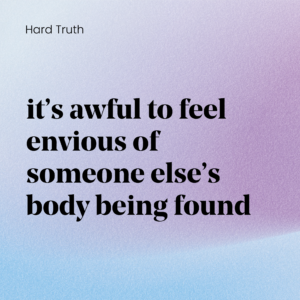
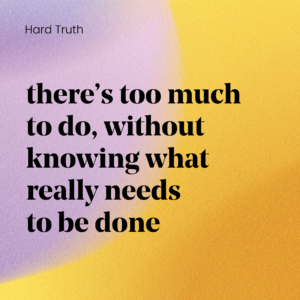
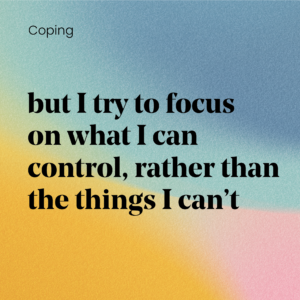
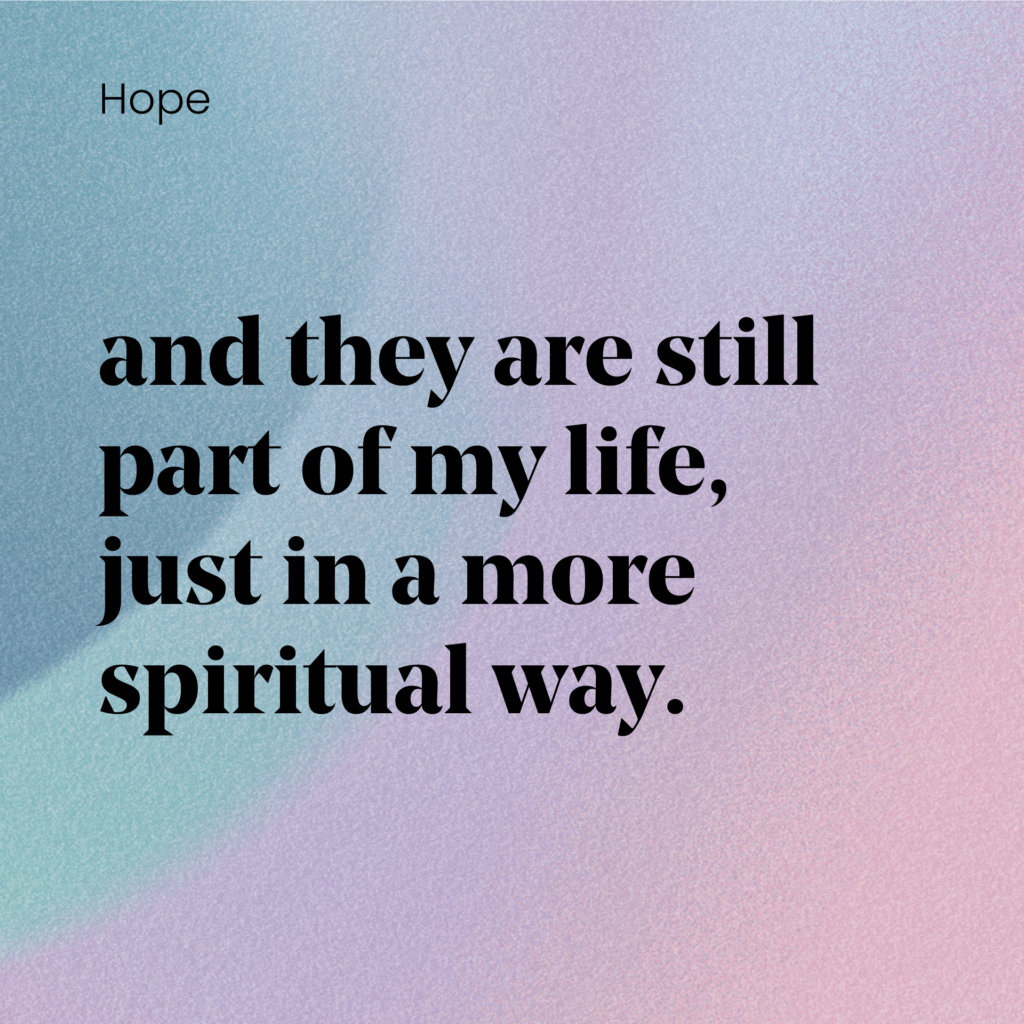
They can be also used as a prompt in a traditional counselling setting, and police, psychologists and various social services have been known to use the cards to help them in their work with families – the insights are invaluable.
Family participants unanimously expressed profound gratitude for the chance to contribute to something that would help others. Because after a prolonged period of feeling defeated, and in lieu of being able to achieve that one all-consuming goal, people relish the opportunity to connect with a community, to share their experience, and by doing so, give solace to others. It was an exercise in meaning-making and some said a tribute to their missing loved one.
The tool itself has been praised by Pauline Boss, it’s won two Good Design Awards for Social Impact and Communication Design, it’s been translated into French, Spanish and Swedish and missing persons agencies around the world have bought this evergreen and universal tool.
But most importantly, the feedback from users around the world has been phenomenal; a sense of validation, of being seen and understood, and the notion of being able to survive because there is proof that others have.
The Hope Narratives is a set of beautiful, thoughtfully designed cards that validate and articulate complex thoughts and feelings. The cards bridge communication gaps between family members, friends, colleagues and mental health care professionals by putting words to indescribable feelings.
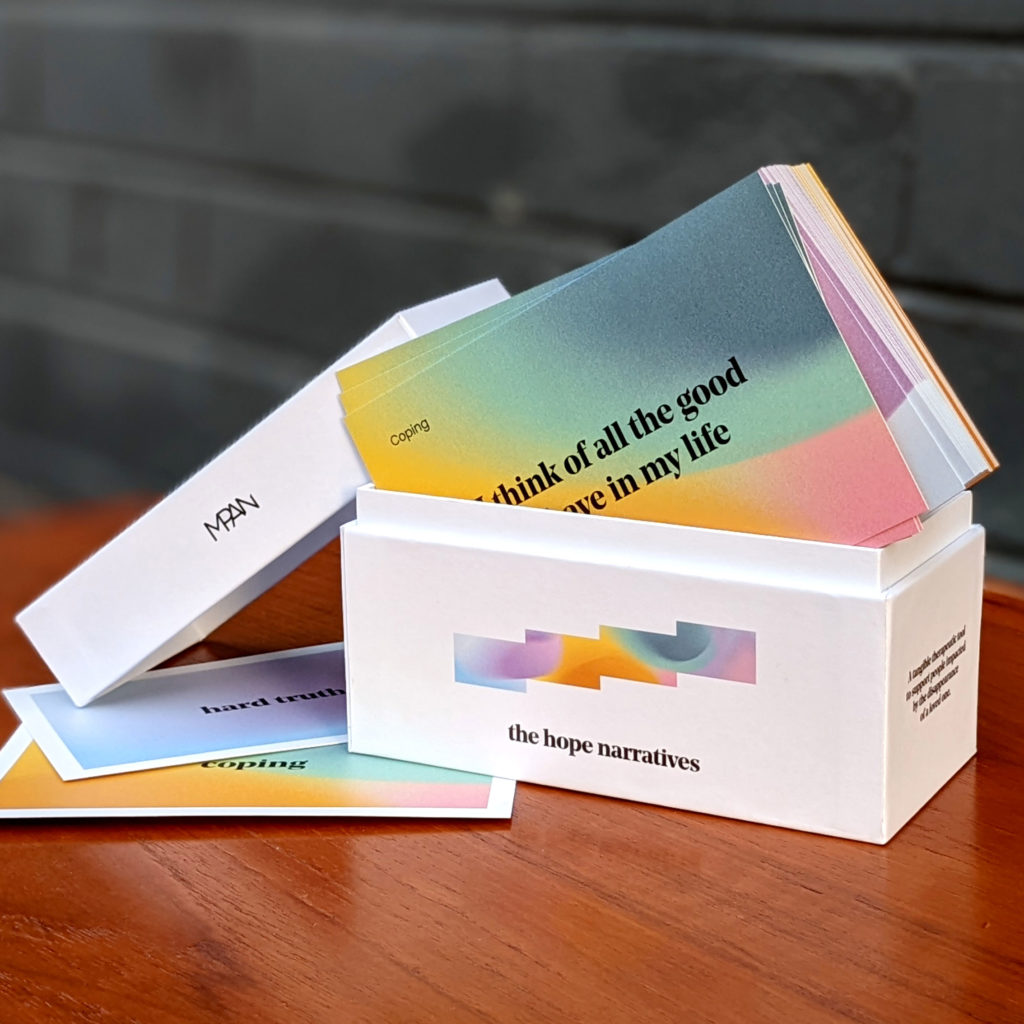
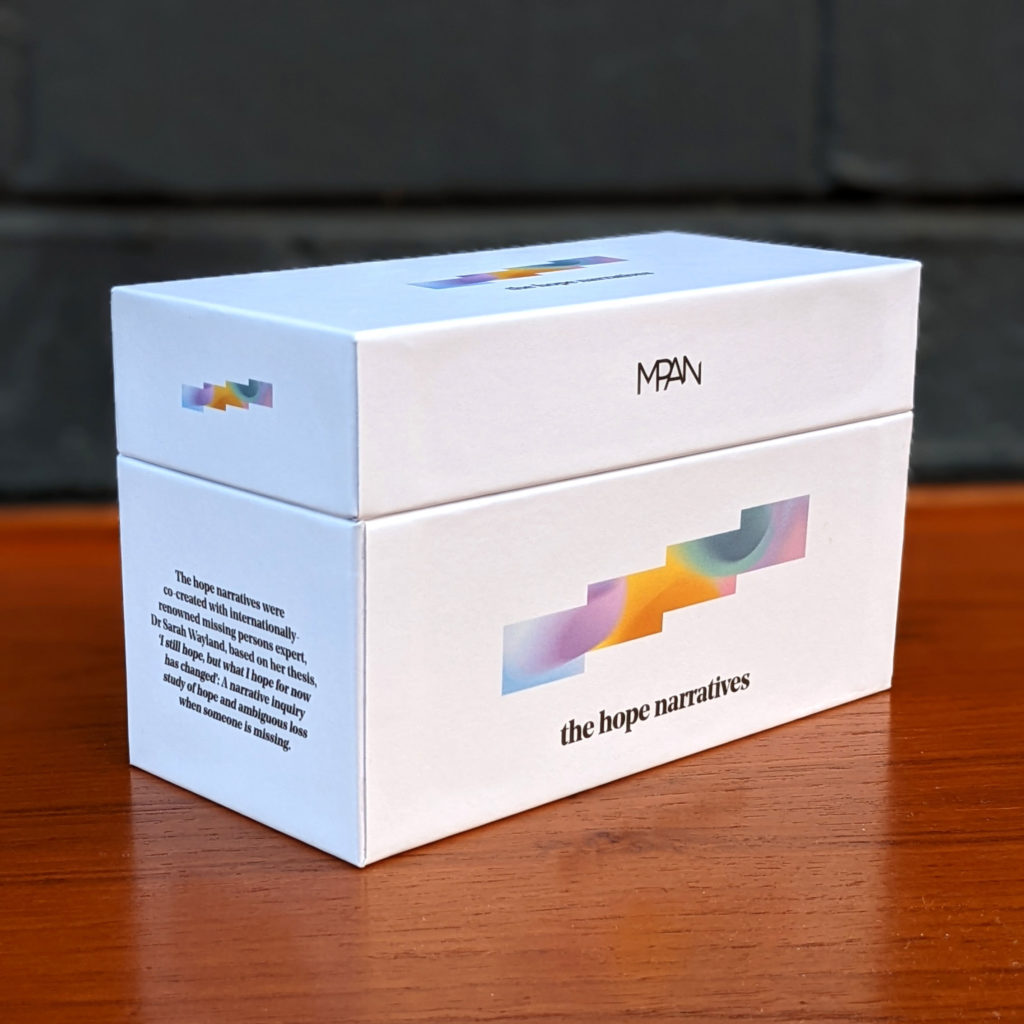
The concept for this project was based on Assoc. Prof. Sarah Wayland’s thesis, ‘I still hope, but what I hope for now has changed’: A narrative inquiry study of hope and ambiguous loss when someone is missing, 2015. Read it here.
Ambiguous Loss, the book and theory, was pioneered by Emeritus Professor Pauline Boss. Learn more at ambiguousloss.com.
